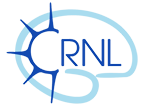OFSEP aims to provide a major epidemiological tool on MS for the scientific community in France and abroad.
This tool must help to answer a large number of questions concerning the causes and mechanisms of MS, the prognostic factors of disease progression, the effectiveness and safety of therapeutic drugs, the impact of the disease on patients and society.
OFSEP uses IT tools to collect clinical data, MRI scans and biological samples in patients with MS or a related disease. Data collected by involved neurologists is made available for researchers who submitted a project provided that it was approved.
OFSEP also proposes methodological support, data management and biostatistics for researchers requesting for it.
OFSEP, the French Multiple Sclerosis registry, is a joint project between French neurologists, neuroradiologists and biologists working on multiple sclerosis (MS). Any patient with MS or a related disease monitored by an OFSEP-participant neurologist can be included in the OFSEP cohort.
Relevant medical data is collected and supply the OFSEP cohort. Collection is continued as long as the patient is receiving care from a neurologist participating in the OFSEP project. A minimal set of mandatory data was set up and includes the description of the patients, their diseases and their therapeutic care (socio-demographic characteristics, neurological episodes, disability, treatment, serious adverse events, etc.). Clinical data is entered in the EDMUS database (computerized medical file specialized in MS patient care) of each center. Biological samples (serum, urine, CSF, stools) come from left-over samples taken for medical purposes in special patient populations with specific characteristics (defined in the OFSEP biological cohorts).
They are stored and processed, conform to standardized procedures. Data concerning these samples are entered into a centralized TK® database (biological sample management software), constituting a virtual BRC. MRI scans prescribed as part of the care protocol are carried out according to standardized acquisition protocols. Nominative data is deleted from the MRIs before transfer and storage on the Shanoir neuroimaging platform. A new system is near-completion. It will gather these three tools in a shared medical records platform, with a secure personalized access.











